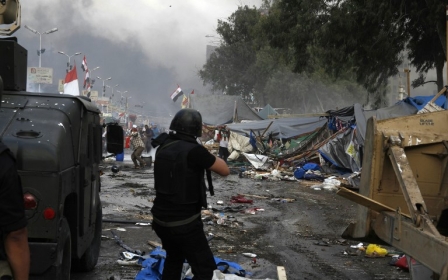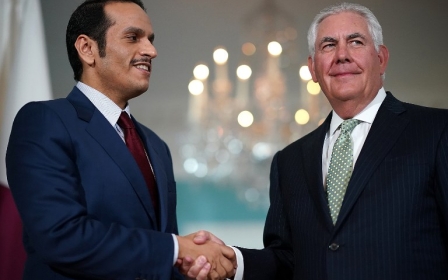Haley says Gulf crisis an opportunity for US to sway both Qatar and Saudi
Washington’s Ambassador to the UN Nikki Haley said she sees the Gulf crisis as an opportunity to influence both Saudi and Qatari policies.
At a hearing on Tuesday and Wednesday, Haley answered the questions of lawmakers on the House Foreign Affairs Committee.
Asked by Congressman Bill Keating about her position on the Qatar blockade, amid conflicting statements from the Trump administration, Haley said, the crisis is a chance to let Doha know that the US objects to its support for groups like Hamas.
"But at the same time, go back to Saudi Arabia and say: 'Look, you can talk to them (the Qataris), but at the same time, you've got to cut this out; you've got to stop doing this'," she continued. "It's an opportunity to kind of hit on both of them.”
Saudi Arabia, Egypt, Bahrain and United Arab Emirates have cut diplomatic ties with Qatar, closing their borders, airspace and territorial waters to Qatari ships and airplanes.
President Donald Trump voiced full support to Saudi Arabia, accusing Doha of funding terrorism at a “very high level”.
Later in the hearing, Haley reiterated that the diplomatic impasse is an “opportunity to hit both sides and try and get more of what we want”.
She defended Trump’s statements against Qatar, saying while the US does have interests with Qatar, including the airbase, the president’s priority is to get rid of terrorism in the region.
Haley said designating the Muslim Brotherhood as a terrorist organisation has not been discussed within the administration, two weeks after Secretary of State Rex Tillerson warned that such a move would complicate US relations in the Middle East.
“I am not a fan of the Muslim Brotherhood,” Haley said. “I do think they are more problematic in the area than helpful.”
In her opening statement, Haley listed defending Israel from criticism among her achievements at the UN.
The United States has rejected former Palestinian Prime Minister Salam Fayyad as UN envoy to Libya because of his nationality. Haley had said in February that Washington was "disappointed" to learn about Fayyad's appointment because the US does not recognise Palestine as a state.
New MEE newsletter: Jerusalem Dispatch
Sign up to get the latest insights and analysis on Israel-Palestine, alongside Turkey Unpacked and other MEE newsletters
Middle East Eye delivers independent and unrivalled coverage and analysis of the Middle East, North Africa and beyond. To learn more about republishing this content and the associated fees, please fill out this form. More about MEE can be found here.




